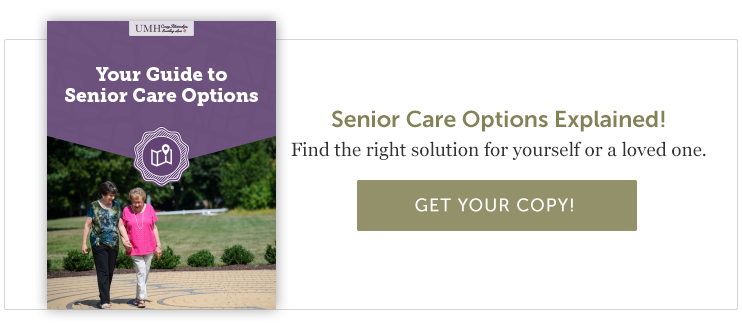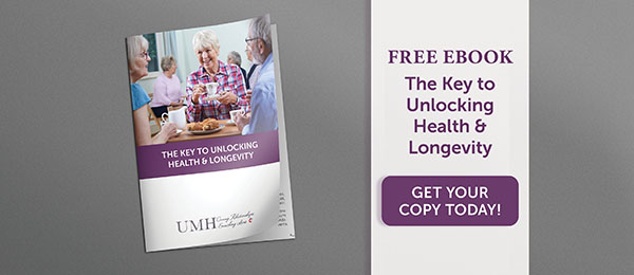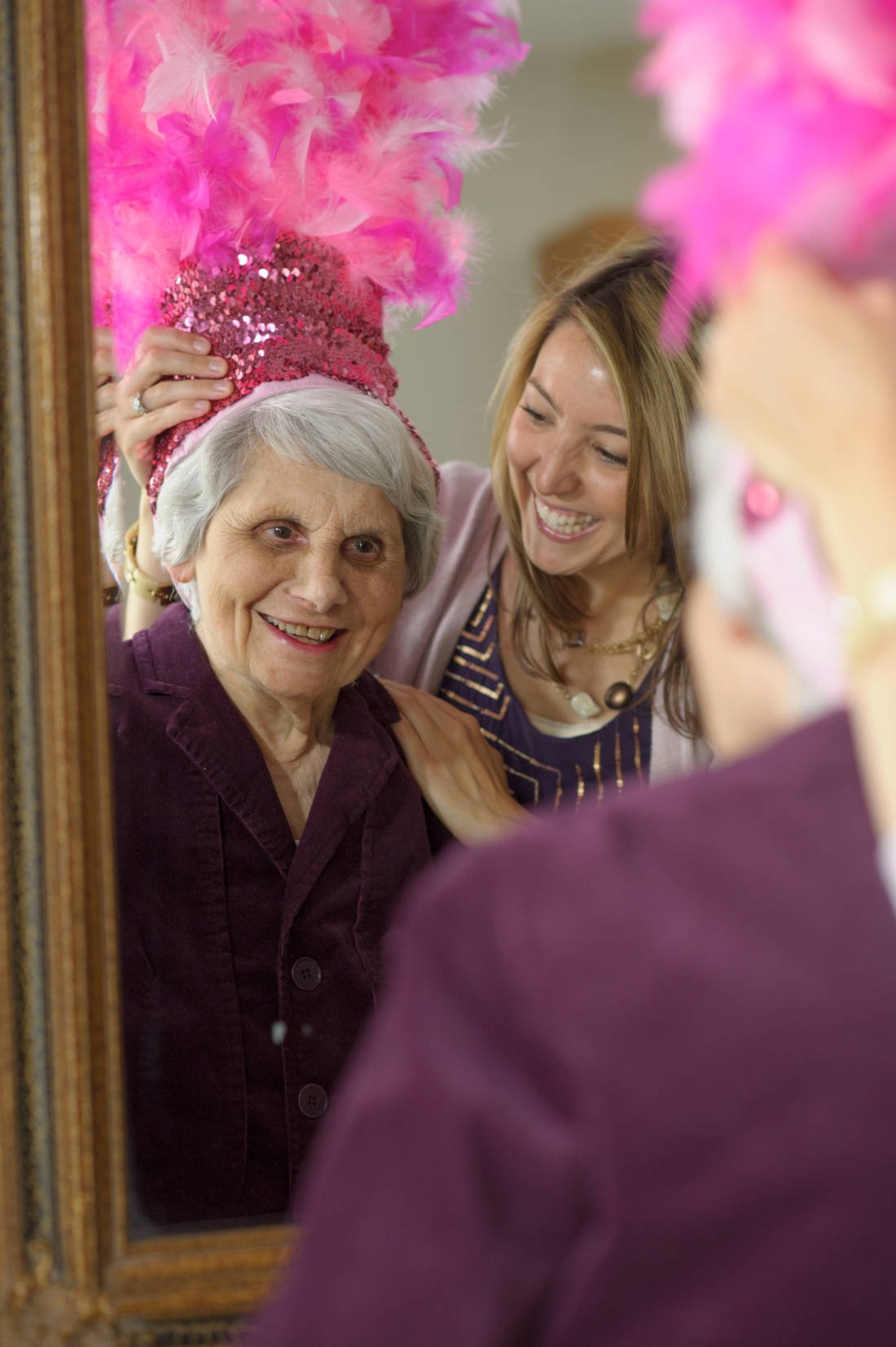It could be said that independence is the ultimate goal for aging adults. In this context, independence means so much more than simply living on your own without extra assistance. It’s about thriving in such a way that supports a sense of freedom in one’s life. So, what does it take to achieve that level of independence and maintain it throughout the aging process?
Ultimately, it comes down to the five basic areas we’ve explored throughout our Aging Well series thus far. Let’s do a brief recap and examine how each of these five components contributes to prolonged independence for seniors, creating a multi-layered approach.
1. Healthy Nutrition
Because nutritional needs and realities evolve with age, it’s important to understand these changes and approach senior nutrition accordingly. From variations in bone mass and muscle to higher risks for developing chronic diseases and health conditions, the aging process requires a particularly strong focus on issues related to the body. Applying a healthy approach to nutrition is fundamental to prioritizing those issues in a way that supports prolonged independence.
Do you know how your nutritional needs differ from those of a younger person, or what a “healthy plate” looks like for a senior? Do you understand the roles protein and fiber play in maintaining a healthy diet? Are you aware of essential hydration needs for seniors, as well as the potential dangers of excess salt and sugar? All of these nutritional factors can affect a senior’s overall physical and mental health, and a lack of attention to them can lead to negative health outcomes that strain one’s ability to maintain a real sense of independence.
2. Ongoing Physical Activity
Proper physical activity is vital to healthy aging, and it supports a wealth of benefits for seniors who incorporate this aspect into their daily lives. Exercise is one of the best and most important elements a senior can implement in the interest of aging well and prolonging independence. Engaging in a healthy amount of physical activity consistently helps to:
- Prevent bone loss
- Prevent chronic disease and cognitive decline
- Relieve osteoarthritic pain and stiffness
- Boost immunity to illness
- Improve mood and mental well-being
The more physical activity a senior integrates into their lifestyle, the more positive outcomes they are likely to achieve. If aging well and maintaining independence for as long as possible is important to you, know that exercise is a critical part of the equation.
3. A Focus on Play
Though seniors may easily overlook this aspect, prioritizing playtime is integral to supporting physical, mental, and emotional well-being, which helps sustain a healthy sense of independence. It all starts in the brain. As playfulness emerges in one’s life, mid-brain neurons actually start to light up and create connections across the brain. Any state or activity that creates new connections in the brain is good for neuro health, even for older adults.
Play also supports physical and emotional benefits, from boosting energy levels, releasing endorphins, relieving stress, and minimizing pain to building relationships and fostering a greater sense of purpose and connection. With age, play remains as valuable and important as ever, and learning to reprioritize it can offer major advantages for seniors. Ultimately, it contributes to a sense of freedom—which, after all, is what “living independently” is all about.

4. Social Connection
Studies have shown time and again that social connection is vital to human health throughout a person’s life. Research actually links social isolation and loneliness to higher risks for certain physical and mental conditions, such as high blood pressure, heart disease, obesity, a weakened immune system, anxiety, depression, cognitive decline, and Alzheimer’s disease. So if we’re talking about prolonging one’s independence, we can’t overlook the vital aspect of social connection.
Studies have also demonstrated that having a network of social support provides mental health benefits, such as improving the ability to cope with stressful situations. Even something as simple as playing a card game with someone or learning a new hobby together can have a major impact on boosting cognitive health. The truth is there’s a real danger in solitary living, and having true independence based on overall health requires ongoing opportunities for socialization and human connection.
5. Brain Exercise
One of the best ways to improve or sustain memory functions and other cognitive abilities is through practice using the brain, such as with education, games, puzzles, and similar types of challenges. Pretty much any activity that involves challenging your brain to learn new skills or acquire information is apt to support aging well and, therefore, prolonging independence.
Research suggests that the more an area of the brain is used, the harder the body works to keep the neurons in that brain region healthy and connected. From continuing education and new hobbies to video games, trivia games, card games, jigsaw puzzles, word puzzles, and everything in between, there’s no shortage of options for challenging the brain. Not only are these activities fun and stimulating, but they also support brain health—a particularly vital aspect of prolonging independence for seniors.
Examining Your Current Lifestyle
In the end, there’s not one quick and easy way to support a senior’s physical, mental and emotional health in such a manner that it supports prolonged independence. On the contrary, doing as much as you can to fill these five buckets on a continual basis is the most dynamic way to achieve overall well-being and prolong one’s independence.
It’s important to examine your lifestyle as well as your level of access to the kinds of opportunities and support that enable seniors to focus on these areas. It might just be the case that a senior community lifestyle is more conducive to prolonging the sense of independence you value dearly.
For additional tips on senior health and lifestyle issues, check out our blog. To find out how United Methodist Homes provides a wealth of offerings and opportunities to support the health and well-being of our residents, contact us today or schedule a complimentary visit now.







